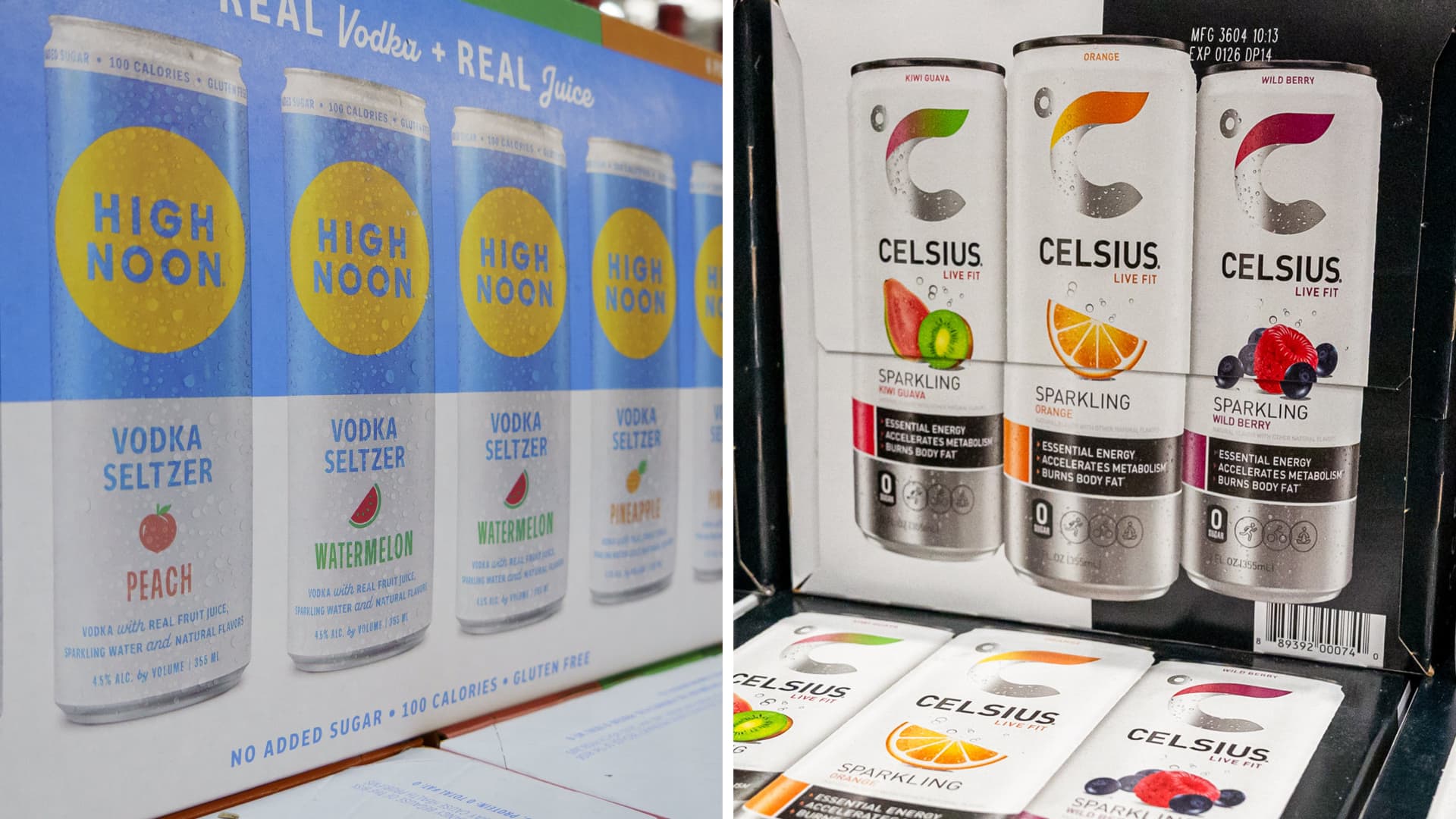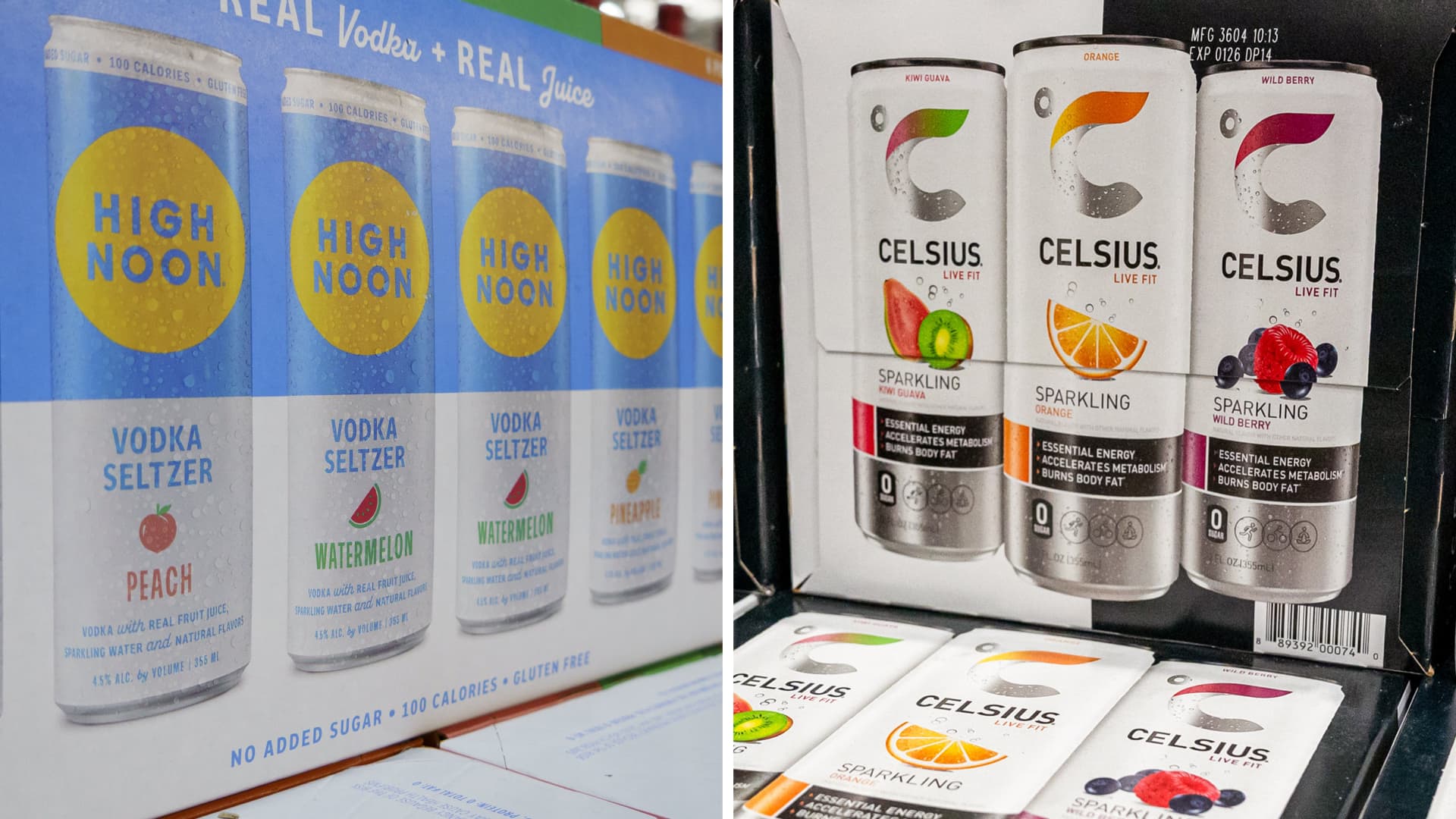The Unintended Consequences of High Noon’s Vodka Seltzer Recall
Introduction: A Perfect Storm of Mislabeling
In the rapidly evolving world of ready-to-drink (RTD) alcohol beverages, High Noon has emerged as a standout brand, known for its refreshing and flavorful vodka seltzers. However, the brand recently found itself in the midst of an unexpected crisis—a voluntary recall of specific 12-packs of its Beach Variety pack due to a mix-up that resulted in some cans being mislabeled as Celsius Astro Vibe Energy Drink. This incident, though seemingly minor, has far-reaching implications for the brand, its consumers, and the broader RTD market.
The Anatomy of the Mix-Up: A Supply Chain Nightmare
The root cause of this labeling error can be traced back to a shared packaging supplier. This supplier, responsible for providing cans to both High Noon and Celsius, inadvertently shipped empty Celsius cans to High Noon. The High Noon production line, unaware of the error, proceeded to fill these mislabeled cans with their vodka seltzer. The result was a product that looked like an energy drink but contained alcohol, posing a significant risk to consumers who might not be aware of the mix-up.
The Role of Shared Suppliers
The incident highlights the vulnerabilities inherent in shared supply chains. When multiple brands rely on the same supplier for packaging, the risk of errors increases exponentially. In this case, the supplier’s mistake was compounded by High Noon’s failure to detect the error before the products reached consumers. This underscores the need for more robust quality control measures and stricter oversight of supply chain partners.
The Impact on Consumers
The primary concern stemming from this labeling error is the potential for unintentional alcohol consumption. Consumers who purchase the affected products believing they are buying a non-alcoholic energy drink may unknowingly consume alcohol. This poses a particular risk for individuals who are sensitive to alcohol, those who avoid alcohol for personal or health reasons, or even children who might be drawn to the colorful packaging.
The Scope of the Recall: Identifying Affected Products
The recall specifically targets High Noon Beach Variety Packs (12-packs) containing the mislabeled Celsius Astro Vibe Energy Drink, Sparkling Blue Razz Edition cans. Consumers can identify the affected products by the following characteristics:
– Product: High Noon Beach Variety Pack (12-pack, 12 fluid ounce cans)
– UPC: 085000040065
– Lot Codes: L CCC 17JL25 14:00 to L CCC 17JL25 23:59 and L CCC 18JL25 00:00 to L CCC 18JL25 02:00 (These codes are located on the outside of the 12-pack)
The affected lots were reportedly distributed in Florida, Michigan, New York, Ohio, Oklahoma, South Carolina, Virginia, and likely additional states. Consumers who have purchased High Noon Beach Variety Packs with the specified lot codes are strongly advised to inspect the individual cans for the Celsius Astro Vibe Sparkling Blue Razz Edition label.
The Broader Implications: A Wake-Up Call for the RTD Market
This recall, while seemingly a minor mishap, carries significant implications for High Noon and the broader RTD alcohol market.
Brand Reputation at Stake
High Noon has built a reputation for quality and consistency. This incident, though not directly attributable to High Noon’s production processes, could tarnish its brand image. Consumers may question the brand’s quality control measures and be hesitant to purchase its products in the future. Rebuilding trust will require proactive communication, transparency, and demonstrable improvements in quality control.
Consumer Trust and Safety
Trust is paramount in the food and beverage industry. The mislabeling incident could erode consumer trust in High Noon, particularly among those who were affected by the recall. Ensuring consumer safety and satisfaction is crucial for maintaining brand loyalty and market share.
Supply Chain Vulnerability
The incident highlights the vulnerability of complex supply chains. Relying on shared packaging suppliers introduces the risk of errors and mix-ups. This recall serves as a wake-up call for High Noon and other RTD brands to reassess their supply chain management practices and implement more robust quality control measures.
Market Competition and Regulatory Scrutiny
The RTD alcohol market is fiercely competitive. Any setback, such as a product recall, can provide an opening for competitors to gain market share. High Noon needs to address this issue swiftly and effectively to minimize any long-term impact on its competitive position. Additionally, the incident is likely to draw increased scrutiny from regulatory agencies like the FDA. High Noon may face additional inspections and audits to ensure compliance with labeling regulations and quality control standards.
Lessons Learned: Preventing Future Mishaps
The High Noon recall offers several valuable lessons for the RTD alcohol industry:
Strengthening Supply Chain Oversight
Brands need to exercise greater oversight over their supply chains, particularly when relying on shared suppliers. This includes conducting regular audits, implementing stricter quality control protocols, and establishing clear communication channels to prevent errors and mislabeling.
Enhancing Quality Control Measures
Companies should invest in advanced quality control technologies and processes to detect and prevent labeling errors. This may include automated inspection systems, barcode scanning, and real-time data tracking.
Improving Employee Training
Comprehensive employee training is essential to ensure that workers are aware of potential risks and are equipped to identify and address labeling errors.
Prioritizing Clear Communication
Transparent and proactive communication is crucial in the event of a recall. Brands should promptly notify consumers, provide clear instructions on how to identify and dispose of affected products, and offer adequate compensation for their inconvenience.
Embracing Traceability
Implementing robust traceability systems can help brands quickly identify the source of errors and limit the scope of recalls. This includes tracking the movement of ingredients, packaging materials, and finished products throughout the supply chain.
Conclusion: Navigating the Aftermath
The High Noon vodka seltzer recall serves as a potent reminder that even the most successful brands are not immune to mishaps. While the incident is undoubtedly a setback, it also presents an opportunity for High Noon to learn from its mistakes, strengthen its quality control measures, and reinforce its commitment to consumer safety. By addressing the issue head-on and implementing the necessary improvements, High Noon can weather this storm and emerge stronger, reaffirming its position as a leading player in the dynamic RTD alcohol market. The road to redemption may be a bit bumpy, but with proactive measures and a renewed focus on quality, High Noon can ensure that future sips are nothing short of smooth sailing.












